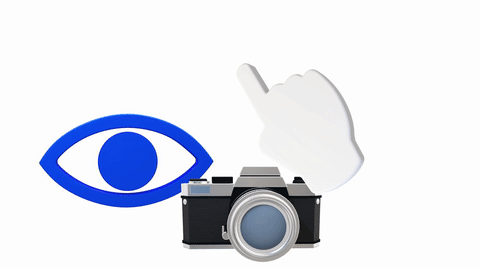I started an experiment recently when I was listening to a talk on ChatGPT. After being a moderately heavy user to get answers to questions, I was thinking if I can get ChatGPT to help generate questions pertaining to questions. Here are the screen shots of how I went about (Hidding the initial prompt first)

🎶Meanwhile, some music for you to enjoy as you read. This piece is part of Vivaldi’s The Four Seasons, particularly the first of the 4 violin concertos, called Spring.
🎶让大家继续读的时候,欣赏一点音乐。这件作品是维瓦尔第的“四季”的一部分 - 4小提琴协奏曲中的第一首,名为“春天”。
Source | 来源: https://musopen.org/
https://soundcloud.com/alan-chang-563971986/four-concerti-grossi-4-vivaldi-op8-i-la-primavera-allegro-largo-allegro
Source | 来源: https://musopen.org/music/2213/antonio-vivaldi/the-four-seasons/
From the second question, I keep asking it to ask again like another person for a few times before I vary the question a little bit though I don't think I need too. A bit of typo didn't create any issue.














Next, I started asking for questions in different languages.

Then I started asking for questions from a second person.

Finally, I can just kept asking "Ask again like another patient or another person accompanying the patient."

As a language model, ChatGPT has already been widely used by people to get answers to their queries. However, in this post, I am exploring a different use case. We focused on how prompt engineering can be utilized to generate questions from different people who are patients or caregivers of patients. In my example, they are seeking consultation with an ophthalmologist. By doing so, we can examine the various ways in which the same question can be asked by different people, whether in English or other languages, to better understand the diversity of our population.
Prompt engineering is the process of selecting or modifying prompts to elicit specific types of responses from a language model like ChatGPT. In the case of medical consultations, prompts can be used to generate questions that patients or caregivers may have about their eye health and potential treatments. By using a variety of prompts, we can generate a diverse set of questions that reflect the unique perspectives and concerns of different individuals.
For example, using prompts like "experiencing blurry vision" or "My mother has trouble seeing" can elicit different types of questions from patients or caregivers. These prompts can be modified and iterated upon to generate additional questions, such as "What are the potential causes of blurry vision?" or "Are there any treatments for age-related vision loss?".
Prompt engineering can also be used to generate questions from non-English speaking patients or caregivers. By translating prompts into different languages, we can ensure that everyone has access to the information they need to make informed decisions about their eye health. For instance, prompts like "我发现近期视力变模糊" or "Saya mengantar ibu saya yang sulit melihat" can be used to generate questions from Mandarin or Indonesian-speaking individuals, respectively.
It's worth noting that prompt engineering is an iterative process, meaning that the prompts may change along the way but we can also end up using the same prompt to generate more questions from different people. By experimenting with different prompts and modifying them based on the responses generated, we can continuously improve the questions generated by the language model.
In conclusion, prompt engineering is a powerful tool for generating questions from different people who may be patients or caregivers of patients consulting an ophthalmologist. By using a variety of prompts, including those translated into different languages, we can ensure that everyone has access to the information they need to make informed decisions about their eye health. Through an iterative process of prompt engineering, we can generate a diverse set of questions that reflect the unique perspectives and concerns of different individuals.

请看我其他帖: @ace108

Greetings appreciated @ace108.
ChatGPT is fascinating, to say the least. I believe that its true scope and applicability are still undetermined today. We still have a lot to learn from this and ChatGPT also has a lot to learn from us.
Regarding its applicability to medical consultations, I believe that the tests should be done with extreme care since wrong opinions or diagnoses could be issued, which could lead the patient or caregiver to poor medication.
I have been extremely surprised with this project that you have undertaken, I hope that in the near future, we can see your progress in it.
Congratulations!
I really liked your post. Thanks for sharing.
In another order of ideas, I would like to invite you to learn about the SP delegation program that we offer at Project Hope. We have just surpassed 250K SP, thanks to our delegator friends. This voting power allows us to distribute among our delegators 100% of the manual curation rewards we make. Our current voting power offers 11% APR, which we hope to increase in the coming months if more people like you join our program.
https://steemit.com/hive-175254/@project.hope/why-you-should-consider-supporting-project-hope-with-delegation-100-dividents-payout
Best regards.
Downvoting a post can decrease pending rewards and make it less visible. Common reasons:
Submit
Thanks for visiting. I am just hoping to share this idea with the people I'm working with. Yes, we still have much to learn.
Downvoting a post can decrease pending rewards and make it less visible. Common reasons:
Submit
I wish you the bigger of success.
Please, try to check out my proposal.
God bless you.
Downvoting a post can decrease pending rewards and make it less visible. Common reasons:
Submit